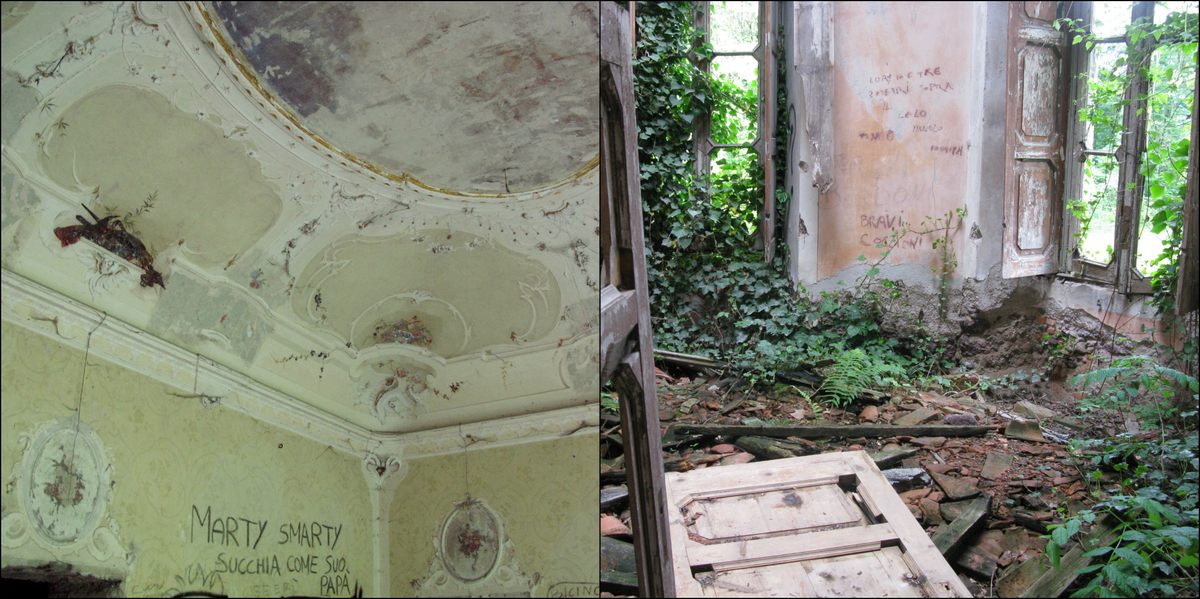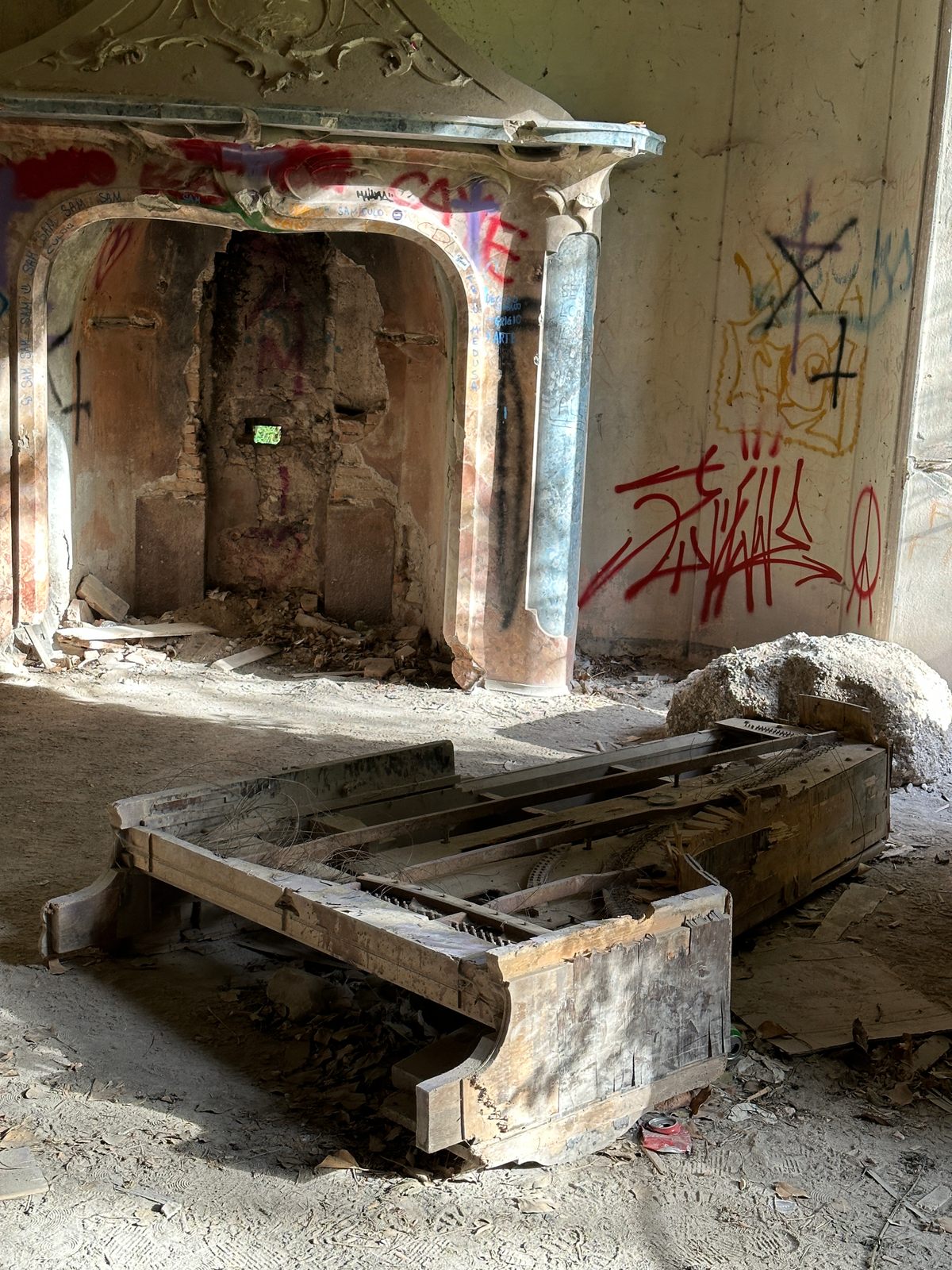There is rumored to be a gothic tragedy at a villa in the mountains of Cortenova, northern Italy, east of Lake Como. The once magnificent beauty of Villa de Vecchi, sometimes referred to as the Red House, the Witches House, or the Ghost House, has been ruined by time and graffiti, leaving it as a desolate ruin.

The Villa de Vecchi used to be the aristocratic holiday residence of Count Felix de Vecchi and his family; it wasn’t always like this. During Italy’s unification, Count de Vecchi (1816–1862), a renowned military hero, accomplished painter, and intrepid traveler, assisted in freeing Milan from Austria as a member of the national guard.
During his youth, he took many trips throughout the Middle East, Egypt, and India. He also wrote a book that sold well and included images from his travels.

Following his marriage to Carolina Franchetti di Ponte in 1844, the Count traveled around Italy while continuing to write and paint about his experiences. By the time the newlyweds returned to Milan, the Count had become a celebrity for his romantic depictions of the places he had seen.
The Count hired architect Alessandro Sidioli in 1854 to create a summer retreat that drew inspiration from the buildings he had seen in Eastern countries during his childhood.

Inside, it was decorated with murals and friezes and had all the contemporary amenities of the day, such as hot water pipes, indoor plumbing, a dumbwaiter, and even a large pressured outside fountain. There was a grand piano and a large fireplace in the main sitting space. Regretfully, Alessandro Sidioli passed away before the building could be finished. This is the genesis of mythology.

The de Vecchi family enjoyed a few beautiful summers in the villa, according to the legends surrounding the Red House, but those happy times came to an end one night in 1862 while the Count was away. Folklore has it that when the Count returned home, his daughter had disappeared and his wife had been cruelly murdered, leaving her face scarred. The Count made every attempt to locate his daughter, but she was never located. The agony of what happened that night drove the Count to commit himself less than a year later.

Nothing came of the murder, but some speculate that it was a revenge strike against Count de Vecchi for his support of the Unification. It remains a mystery until now. Biago, the Count’s brother, inherited the house, and the family kept it until the start of World War II. Subsequently, it was possessed by other aristocratic families before being abandoned in the 1960s.

During the early 1920s, Alistair Crowley is said to have been one of its most famous guests. Legend has it that those attempting to channel the demonic energy imprisoned within the house began performing satanic rituals there. Locals say they can still hear the grand piano being played from inside the ruins on quiet nights. The reality, though, is less scary.

In an attempt to utilize the adjacent thermal springs, the Count did order the construction of the Red House; however, by the time he employed Alessandro Sidioli, he had already become a widower.
By the early 1860s, the Count’s chronic liver illness had made him severely ill. He painted and took care of his children during the last months of his life, alternating between his residences in Milan and Cortenova. At the age of 46, he passed away in Milan from liver failure, leaving his brother Biago in charge of his two small children as well as his wealth and possessions.

Even Nevertheless, paranormal believers and ghost seekers continue to insist that this home has a particularly eerie atmosphere. The Red House is still only a magnificent shell from a bygone era. After the windows were taken out, Mother Nature started to rebuild the masonry. In 2002, an avalanche in Cortenova destroyed many structures, however the Red House survived unharmed.
The Red House bears the marks of human habitation: the magnificent piano that once stood there has been destroyed, and layers of graffiti have revealed the exquisite murals.






